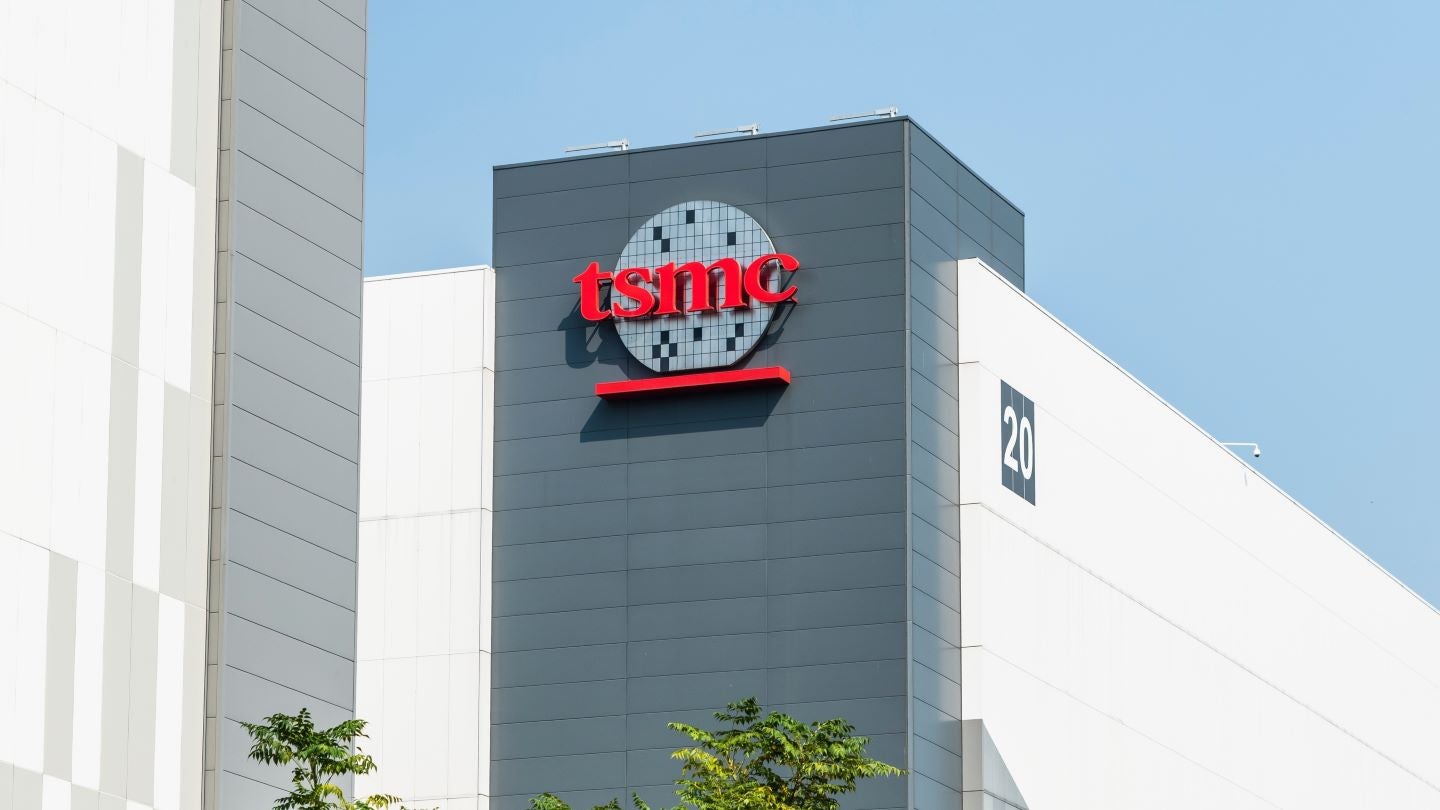
Taiwan Semiconductor Manufacturing Company (TSMC) is looking to expand its presence in Europe, targeting the artificial intelligence (AI) chip market, reports Bloomberg.
This development was revealed by Taiwan’s National Science and Technology Council Minister Wu Cheng-wen in an interview with Bloomberg TV.

Access deeper industry intelligence
Experience unmatched clarity with a single platform that combines unique data, AI, and human expertise.
The minister said: “They have started construction of the first fab in Dresden, they are already planning the next few fabs in the future for different market sectors as well.”
TSMC, the world’s leading chipmaker, is investing heavily in new sites across the globe, including the US, Japan, and Germany.
The move is partly to mitigate geopolitical risks associated with China.
The company’s €10bn ($10.9bn) Dresden plant in Germany, its inaugural EU factory, is expected to commence production by the end of 2027, with state subsidies covering around half of the project’s costs.

US Tariffs are shifting - will you react or anticipate?
Don’t let policy changes catch you off guard. Stay proactive with real-time data and expert analysis.
By GlobalDataMinister Wu highlighted the significance of the AI market, mentioning that it will be a crucial segment for TSMC.
He cited potential collaborations with companies such as Nvidia and Advanced Micro Devices, suggesting that TSMC may also explore opportunities with other semiconductor firms offering alternative designs.
Wu mentioned the possibility of expanding in Dresden or other EU locations for TSMC’s upcoming fabs.
Europe’s established chipmakers, such as NXP Semiconductors and Infineon Technologies, traditionally concentrate on mature technologies for industrial and automotive applications.
However, Europe has seen the rise of next-generation chip designers, including Germany’s Black Semiconductor and Axelera AI in the Netherlands, potentially opening new avenues for TSMC.
TSMC’s international factories are not only expanding the company’s reach but also fostering investment opportunities for nearby regions.
The Czech Republic, in particular, is set to benefit from TSMC’s Dresden site, as Prague and Taipei have strengthened their ties.
Minister Wu disclosed that Taiwan’s government is contemplating supporting TSMC suppliers to invest in a Czech location near Dresden and is seeking to facilitate joint R&D programmes between Taiwan and the Czech Republic.
In a separate statement, Minister Wu expressed his expectation that Taiwanese chip firms will continue to face pressure to expand in the US, regardless of the upcoming presidential election results.
TSMC has committed over $65bn for three plants in Arizona, a strategic move that Wu believes will ultimately benefit Taiwanese companies by driving self-improvement, despite short-term challenges.






